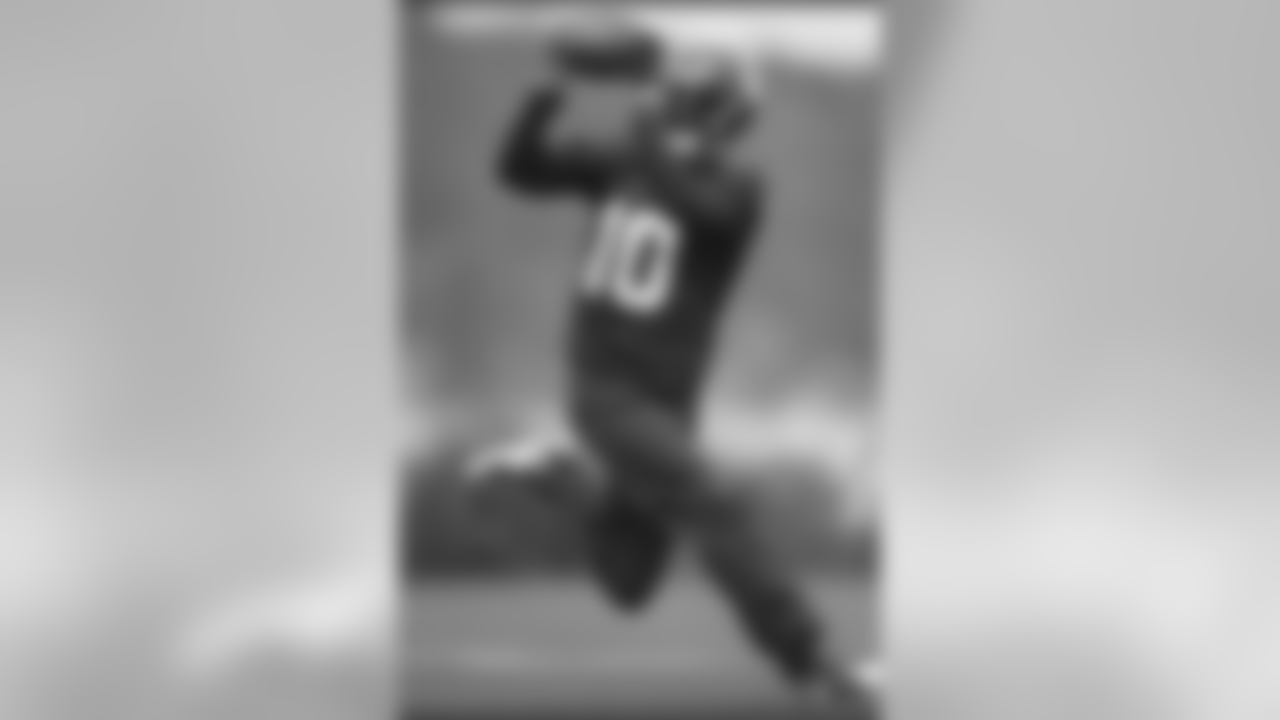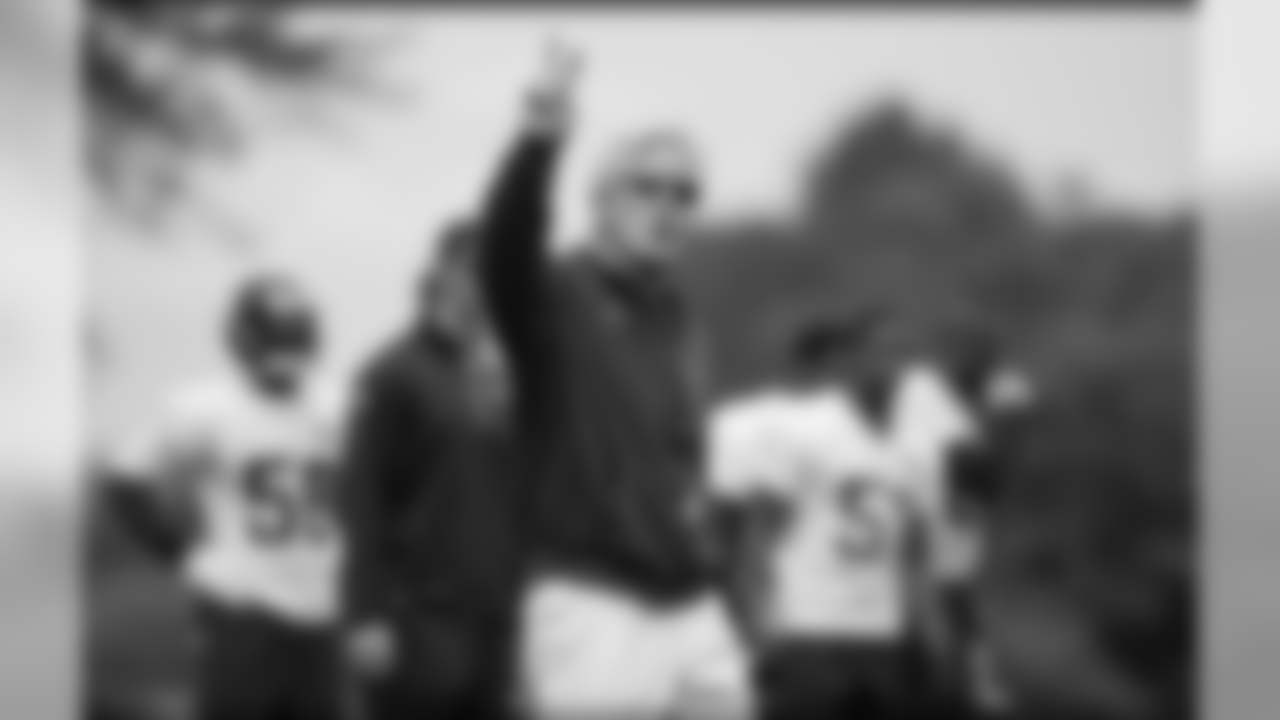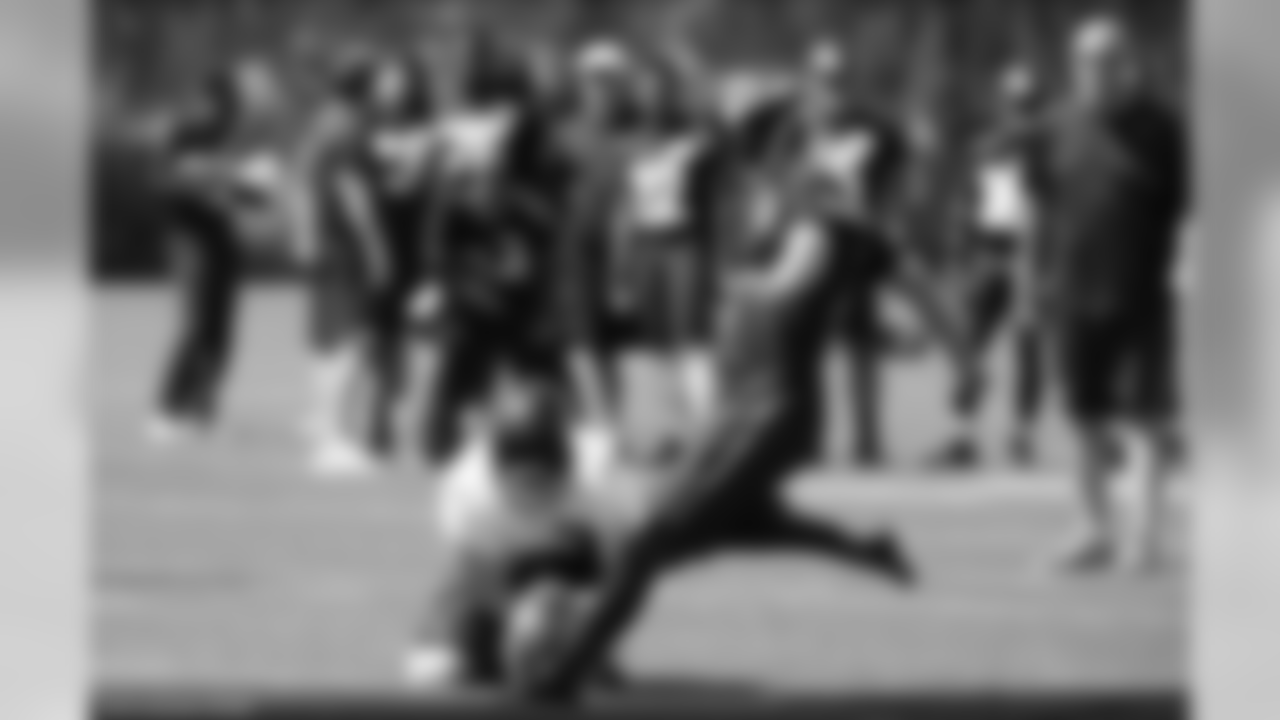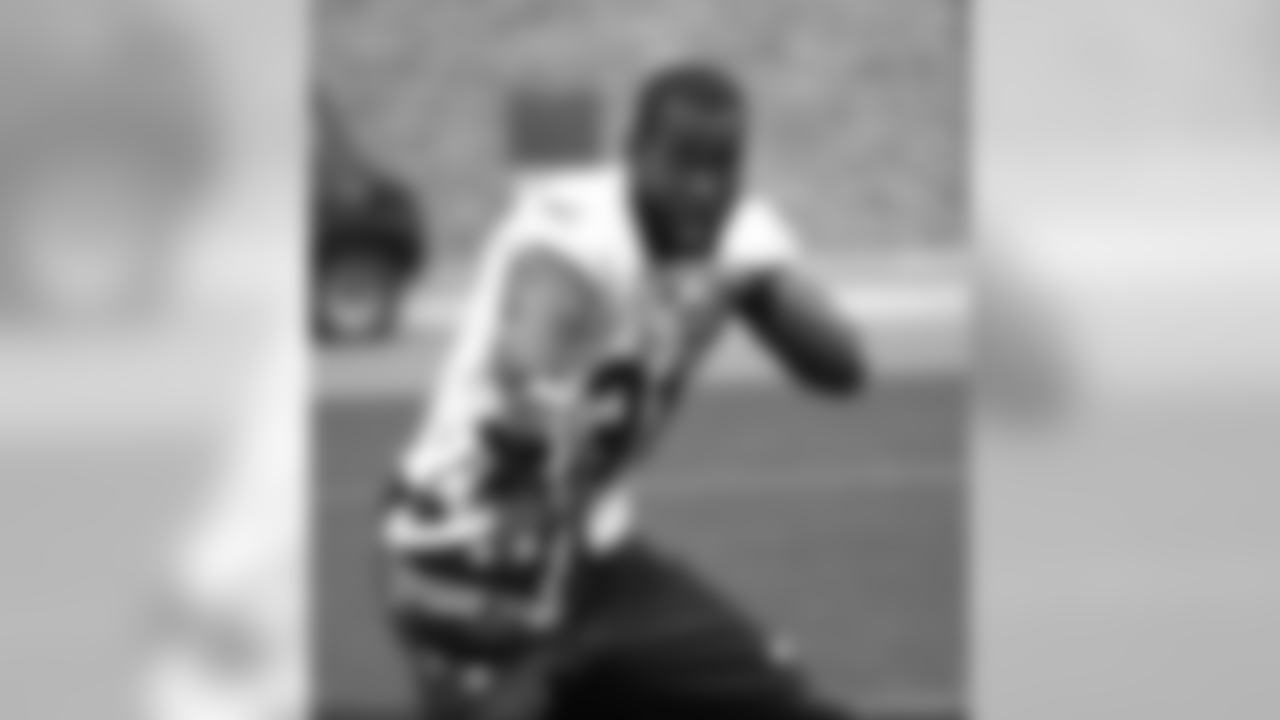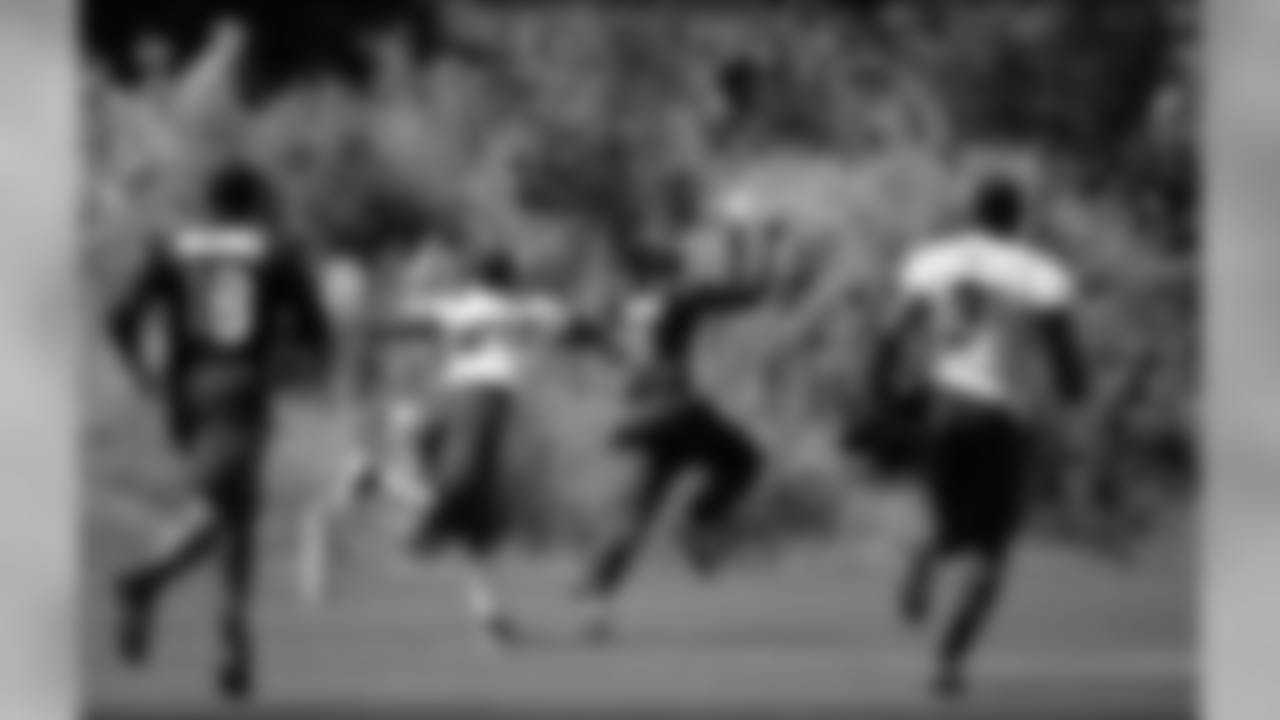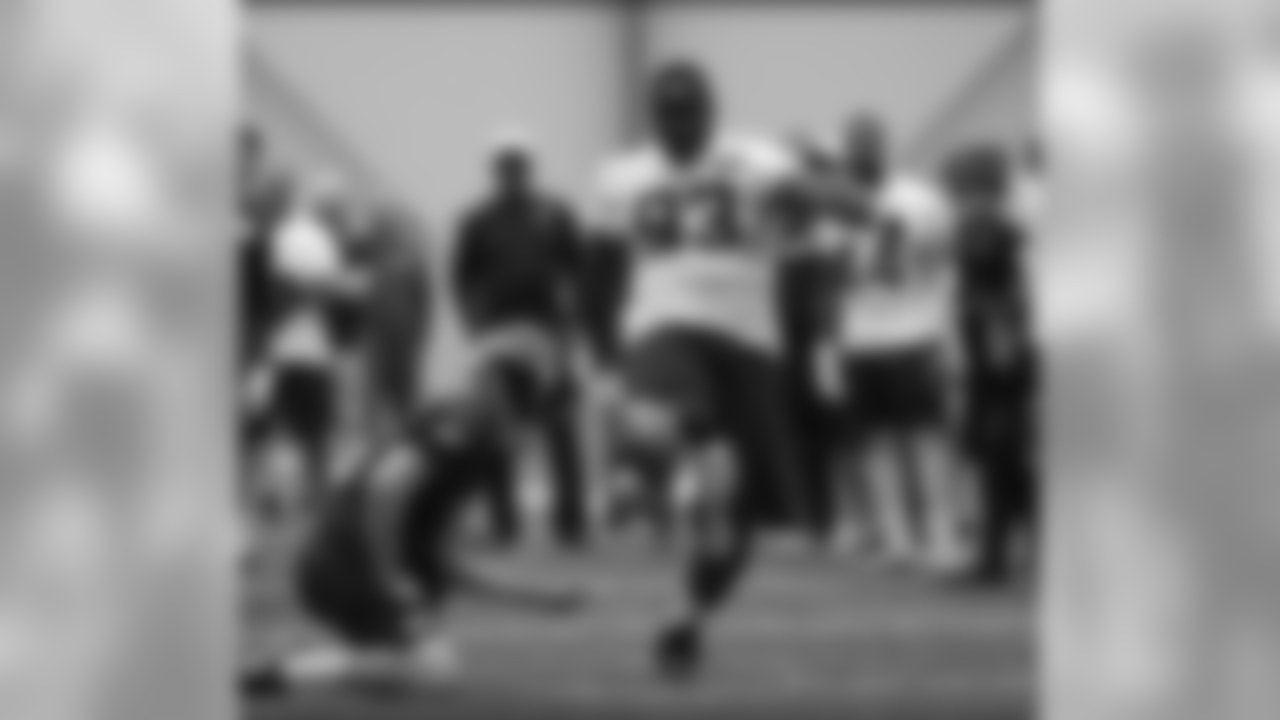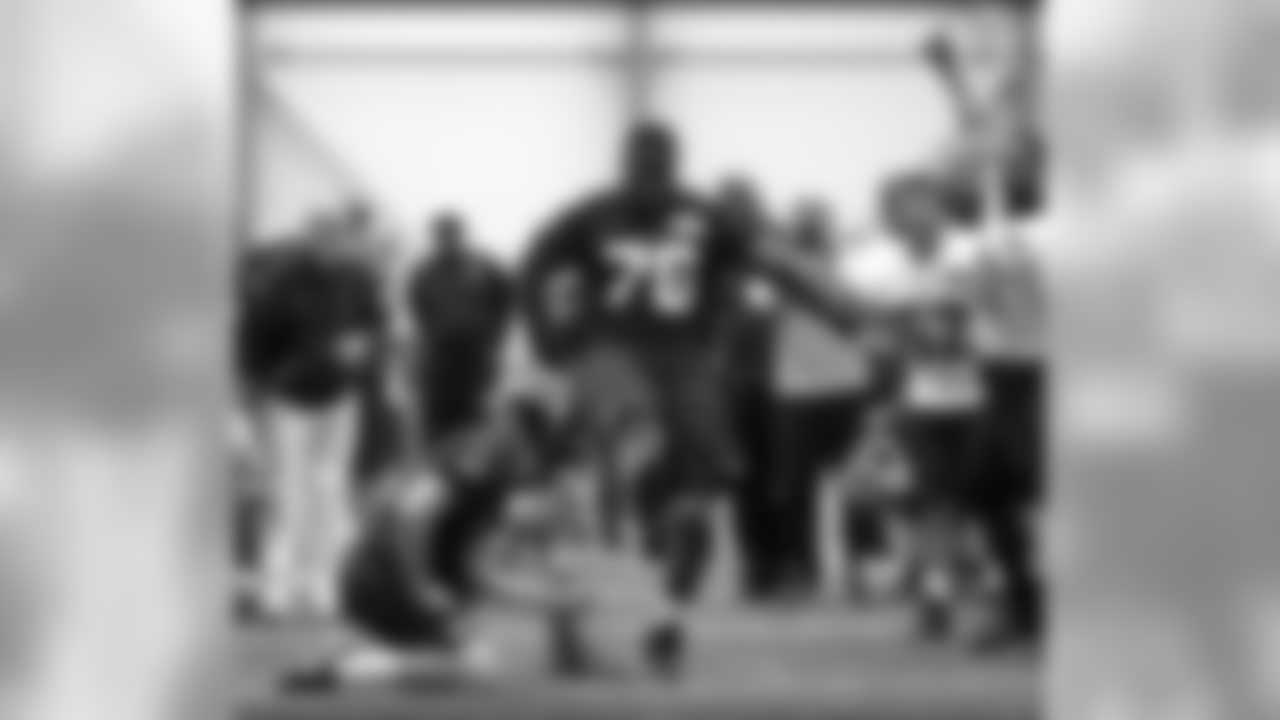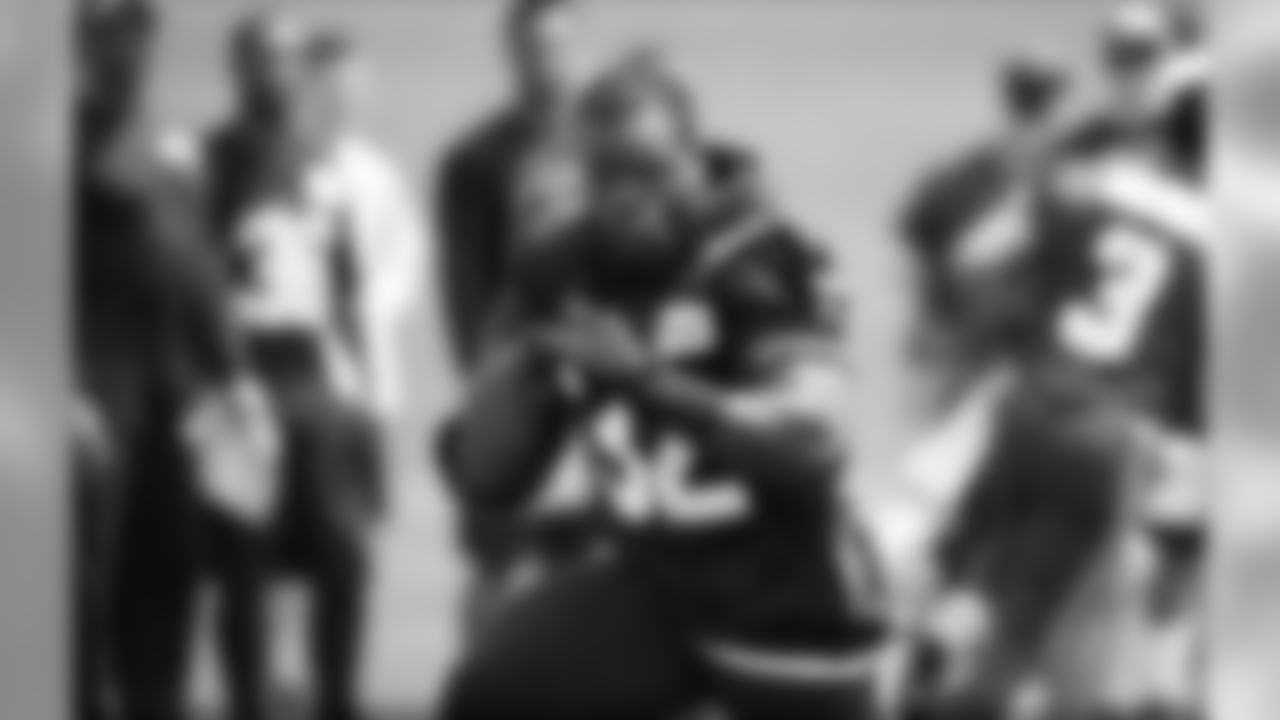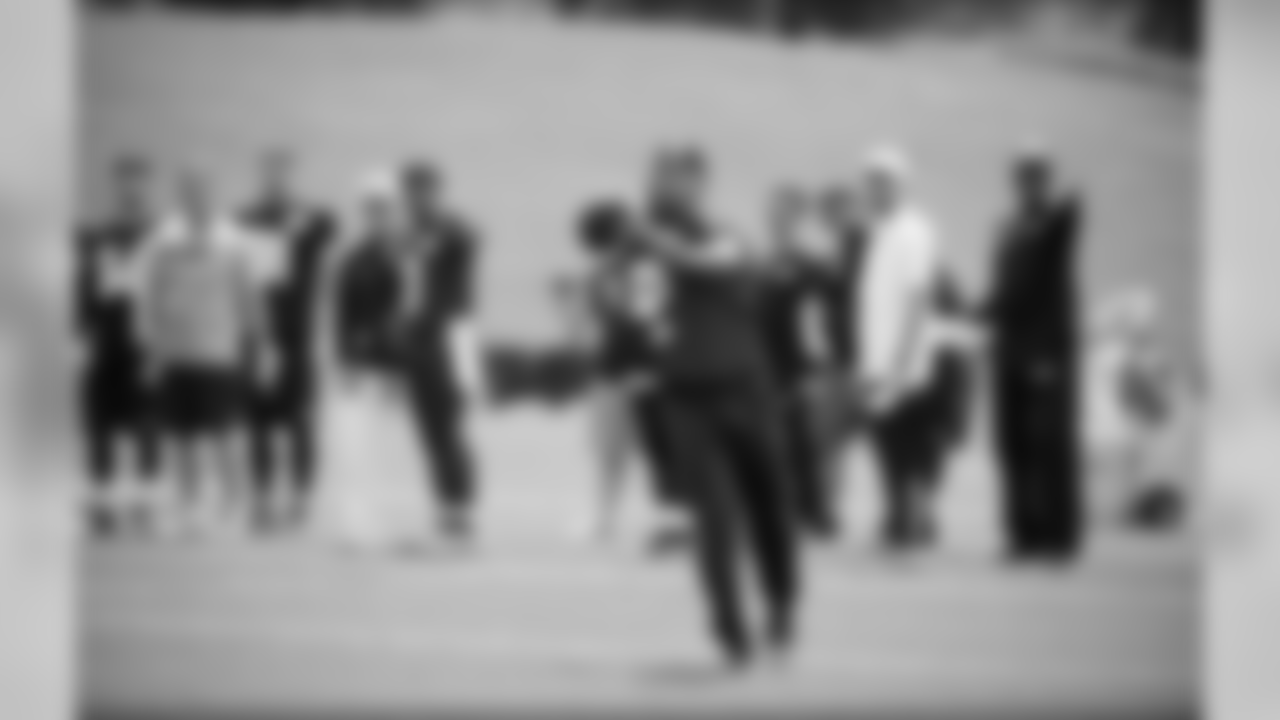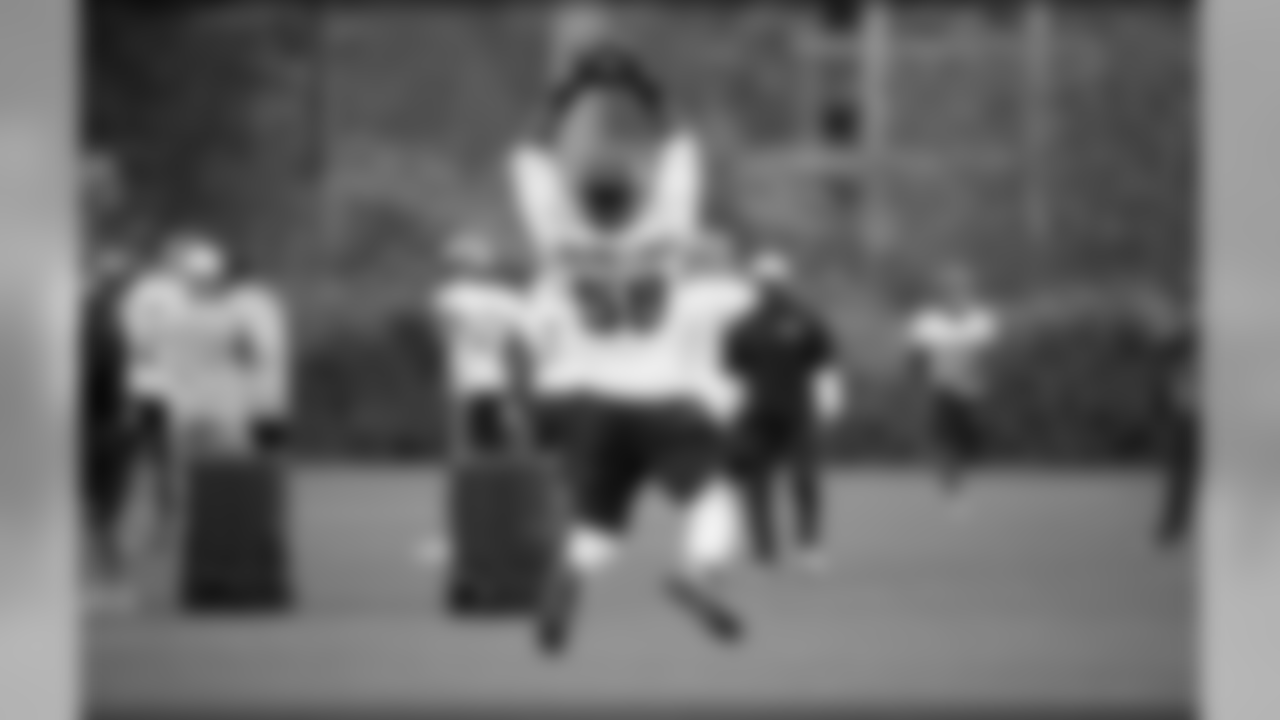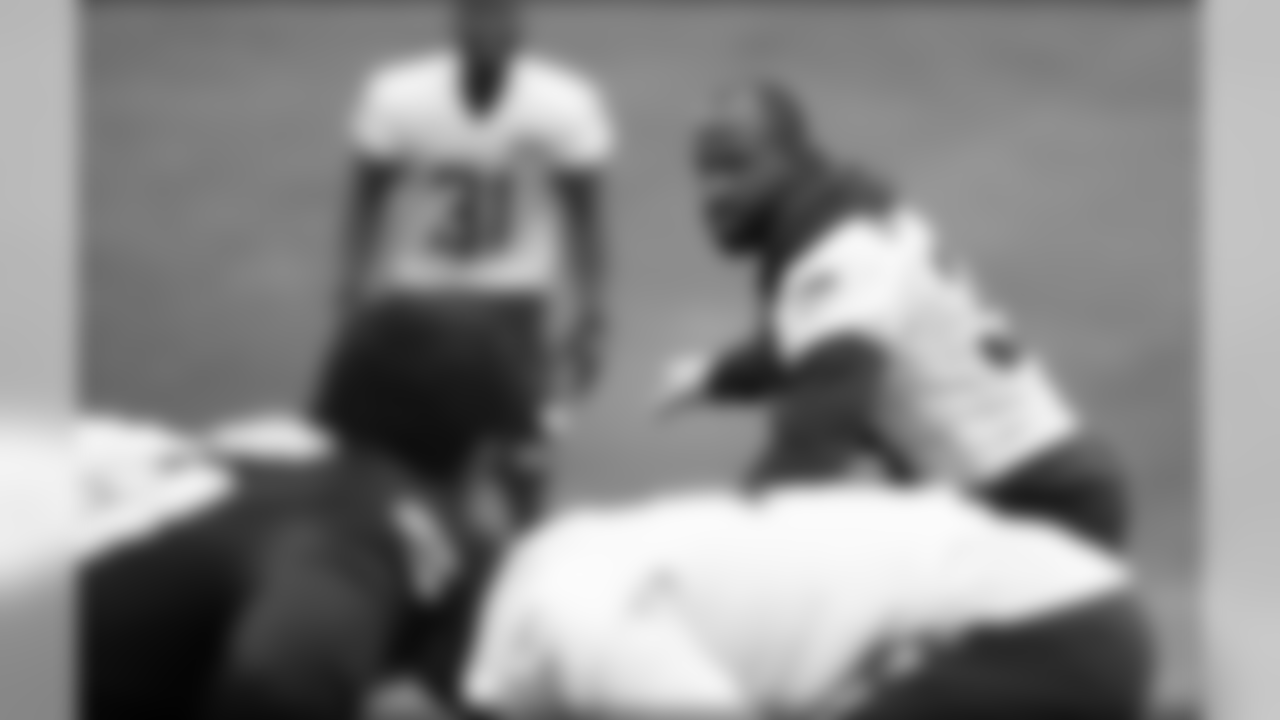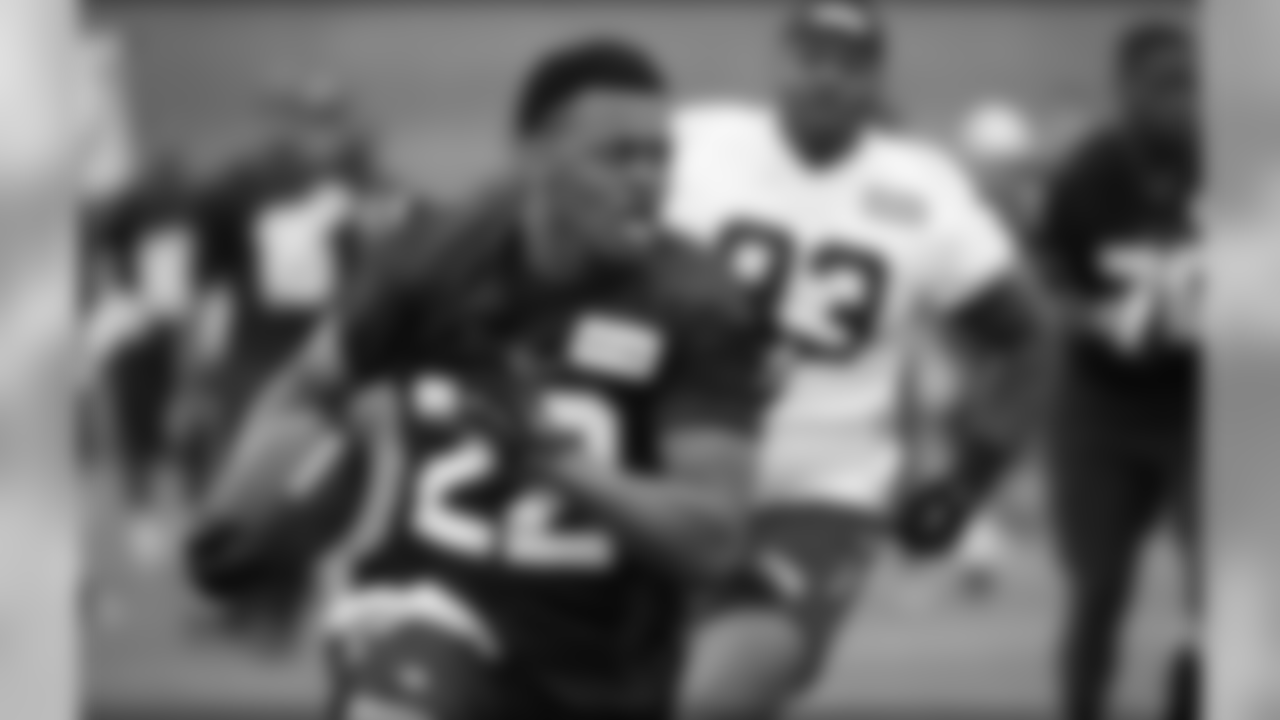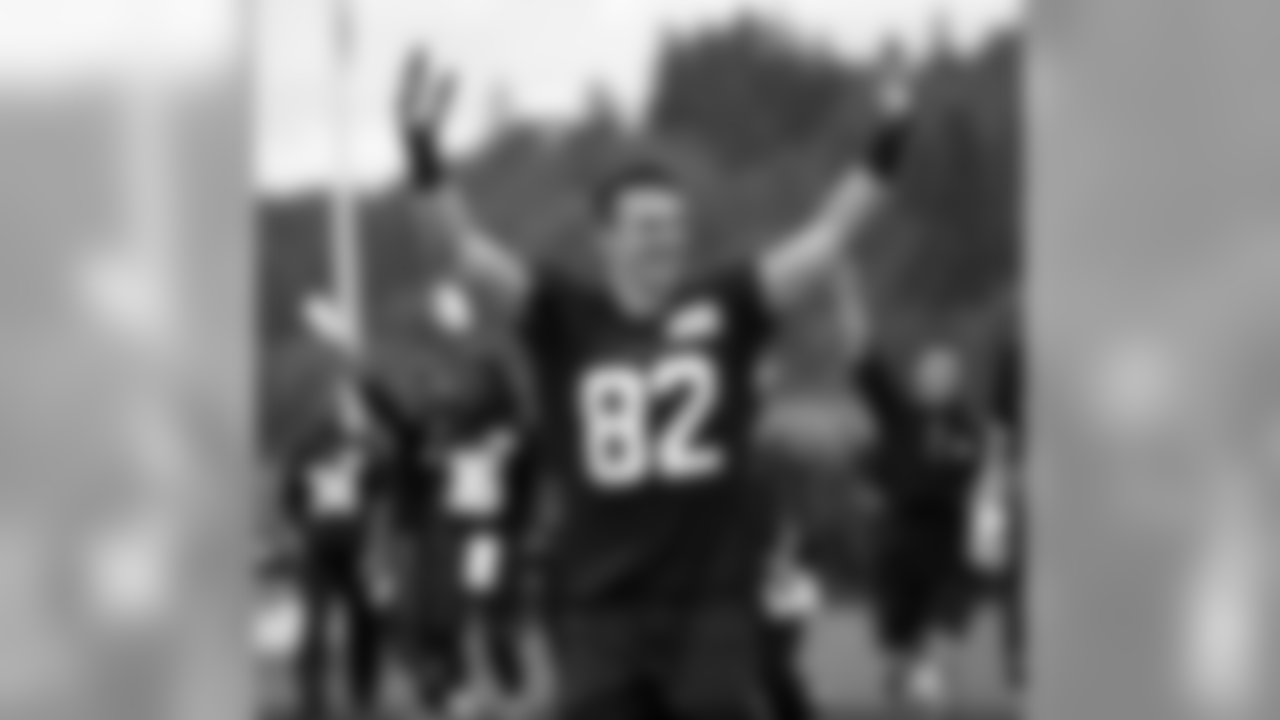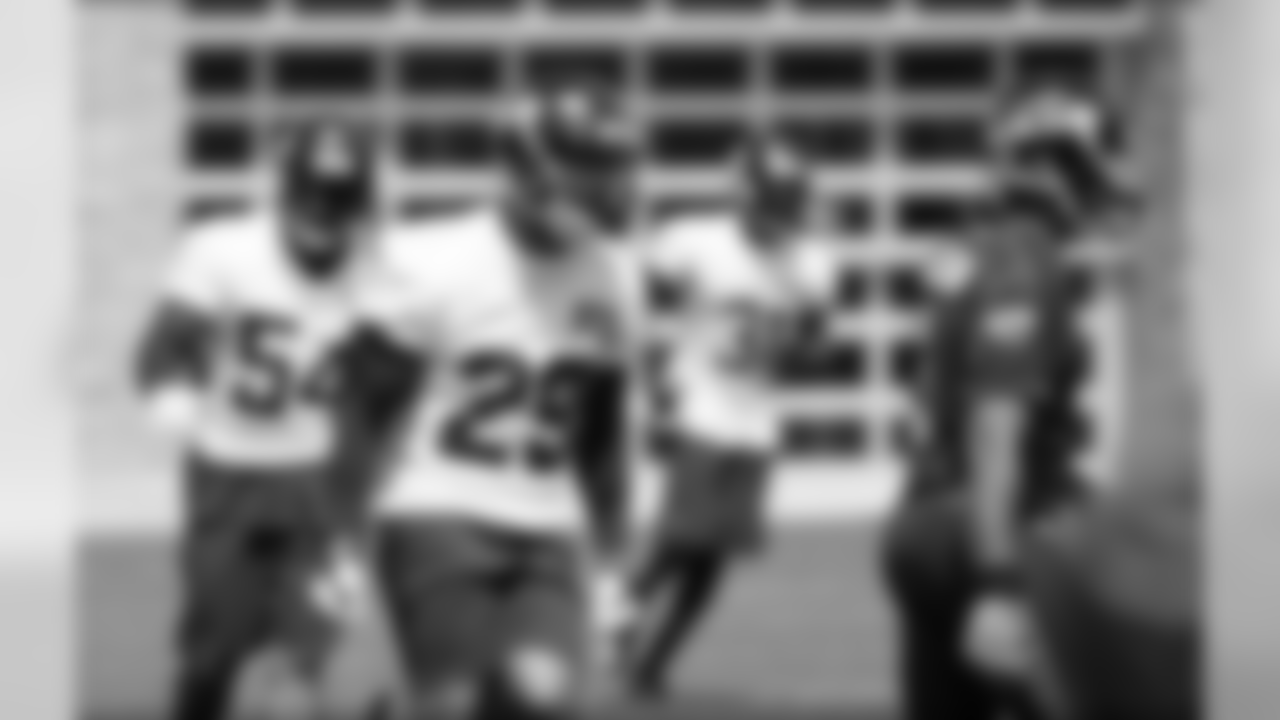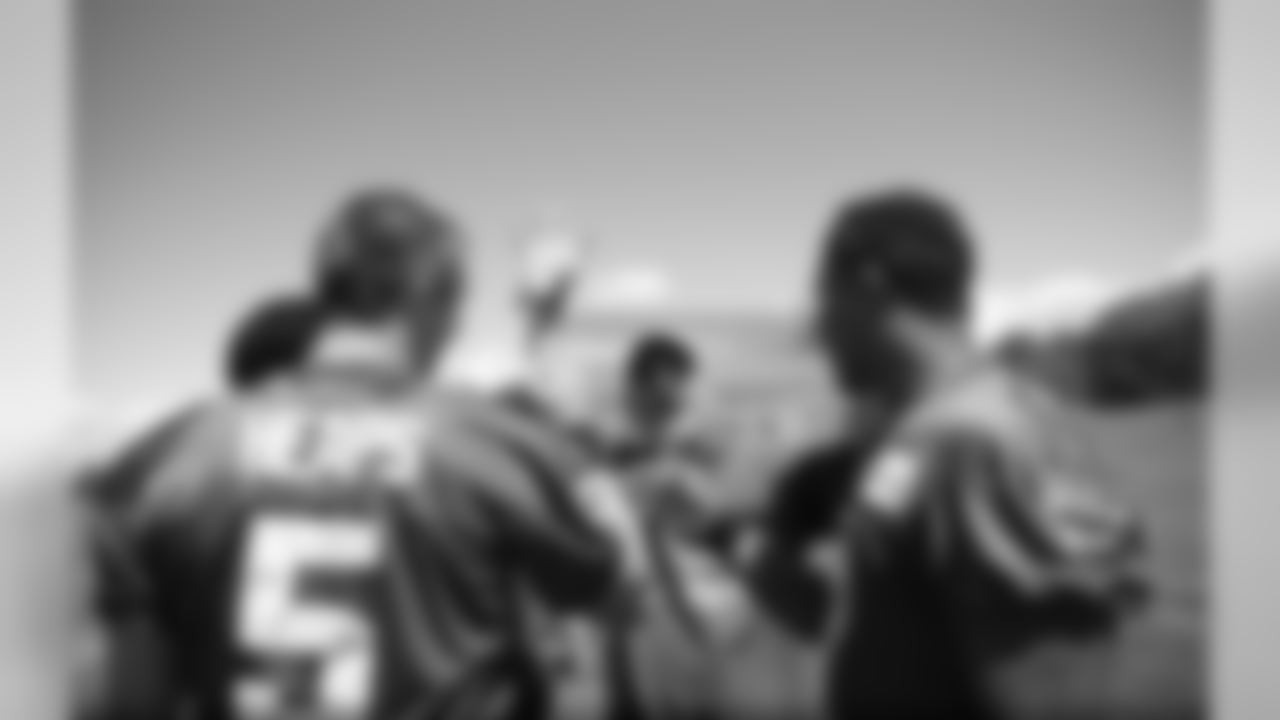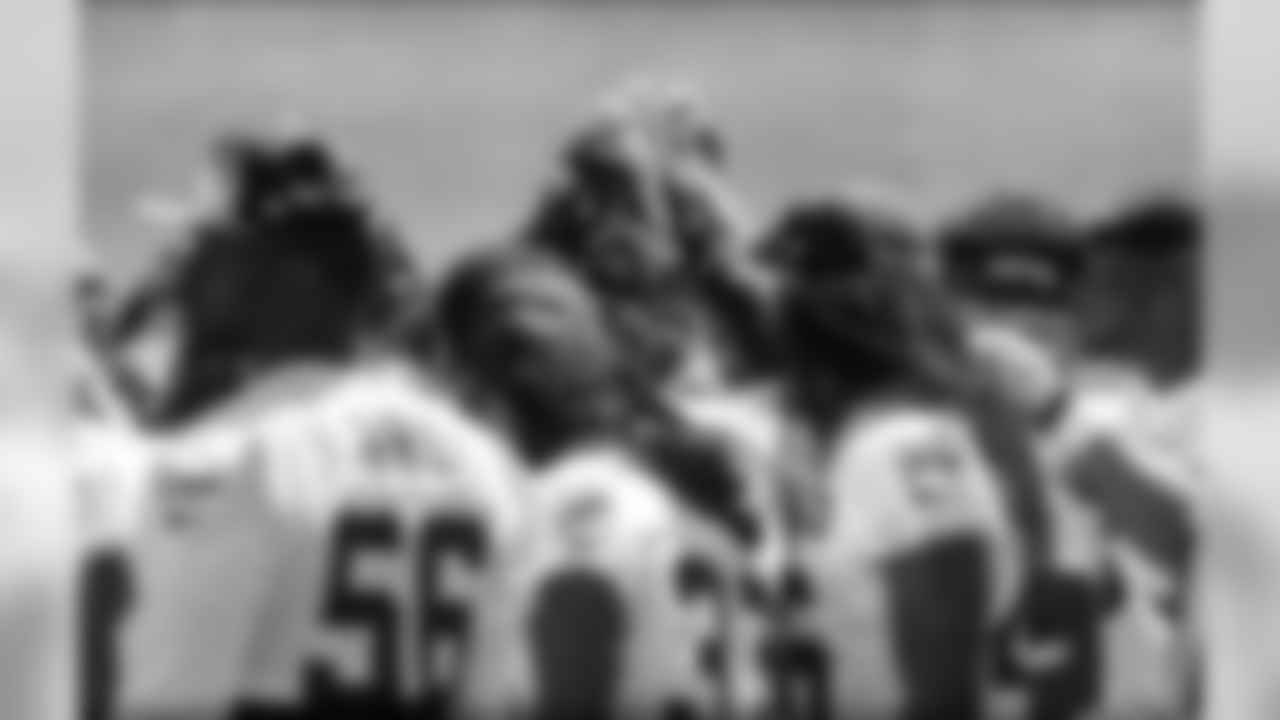Sherman Smith's lengthy career in the NFL has such a nice symmetry to it, it almost seems like it was destined to play out this way. But the way Smith tells it, none of this seemed likely, even possible, to a kid growing up in Youngstown, Ohio so many years ago.
Part of the first draft class in Seahawks history, Smith enjoyed an impressive playing career as the team's leading rusher in its early years. After retiring, Smith started a coaching and teaching career in the Redmond School District, then moved from the college ranks to the NFL, which eventually brought him back to Seattle where he was part of the first Super Bowl championship in franchise history.
"Coming back definitely was unexpected," Smith said. "It wasn't something where I said, 'Man, I would love to go back one day and coach in Seattle, live in Seattle.' So it's just an unexpected pleasure to be able to come back, then win the first Super Bowl here and be a part of what we're doing now."
If this is Smith's final stop before retirement—that's not in his plans just yet—his career in professional football would have perfect bookends starting and ending with a franchise that went from expansion team to one of the NFL's model organizations, with Smith on hand to witness both those early struggles and recent triumphs.
Yet Smith calls all of this "an unexpected pleasure," because there was a time in his life when he never could have imagined this kind of success.
As an African-American teenager in Youngstown, Ohio in the 1960s, Smith didn't know it was OK to dream big until his father forced him to see that there was more out there for him in life than working in a steel mill and staying in Youngstown forever. When Smith let it be known to his father that his goals were to get a job, find an apartment and buy a decent car, nothing more, his dad took him for a life-changing ride around town. The elder Smith drove his son around, pointing out the local steel mill, telling his son, "don't buy the lie" that this is the only job you can do. Smith sat in silence as his father pointed out the housing projects and told his son not to believe the lie that he couldn't live somewhere nicer. Smith heard his dad tell him not to buy the lie that he couldn't become a doctor or a lawyer or a teacher.
"It was very life-altering, because growing up at that time in Youngstown, Ohio, race was a big issue at that point, and people were telling you there were certain things you could and couldn't do," Smith said. "But my father wasn't buying into that. He just let me know, 'Don't buy the lie. Don't buy the lie that you can only live in the projects and you can only work in the steel mill.' He dreamed big and made me dream big also. That was definitely life-altering for me, because I was perfectly content getting a job in the steel mill, and if a got a nice car, OK, that's cool, that's all I want to do. My father, the way he reacted when I told him that, he said, 'Let's go.' He told me not to say a word. It really hit me. That's when I had to decide what I really want to do."
Motivated both by his father and also his football coach at North High School, Clifton Knox, Smith had a new goal, not to work in a steel mill, but rather to make an impact on people, just as Knox had done for him and his teammates.
"I'm a junior in high school and I'm sitting in the back of my health class, and our football coach, who came to Youngstown and made a world of difference in our community and our school and our football team, he turned it around, because he changed the way we thought," Smith said. "The same thing my dad did for me, he did for the school… That's when I decided I wanted to be a coach. I said, 'That's what I want to do, I want to be coach. I want to make a difference like Coach Knox has made.'"
Smith's coaching and teaching career had to wait thanks to his talent on the field, first as quarterback at Miami of Ohio, then a running back for eight seasons in the NFL. Then even when he got into coaching and teaching in Redmond, he had no immediate goals to coach at a higher level. But when his alma mater came calling about a job, Smith couldn't ignore that memory of his father telling him not to sell himself short. That pushed Smith to pursue a college job, then later to leave the college ranks when Jeff Fisher and the Houston Oilers offered him a job.
"I looked at it as—my faith is a really part of my life—and I just saw it as God opening doors for me to go somewhere where I didn't expect to go," Smith said. "And it was still about coaching, you just go from high school guys to college guys to pro guys. I thought this was just another step in coaching guys—not so much about Xs and Os, but about the players themselves. You can still teach."
How Smith returned to Seattle is mostly a story of good timing, and as is so often the case with NFL jobs, connections made with other coaches. Smith had just been let go with the rest of the coaching staff in Washington after the 2009 season, and while he didn't know Pete Carroll, Smith had admired him from afar, and did have a connection with Jeremy Bates, the offensive coordinator Carroll brought with him to Seattle from USC.
"I remember watching Pete on the sideline when he was at USC, and I would always say to myself, 'Man, that guy looks like he's having a good time,'" Smith said. "We had just been dismissed in Washington, and Jeremy Bates was the offensive coordinator here, and he and I had a history in Tennessee… When you met (Carroll), it wasn't a handshake, it was a hug. It was just cool talking to him."
When Carroll extended a job offer, the decision was easy for Smith, and not just because he was currently out of work or even because it was with his former team, but also because of what he saw Carroll and general manager John Schneider starting to build.
"Where else would you want to go? You can't work for a better guy," Smith said. "This is a great organization. I remember, John Schneider, our first year here, we were sitting in meeting room and he came in there and said, 'Guys, tell me who are the top five organizations in the league.' Guys gave different answers, I can't remember who they were. He said, 'It's our goal to have every free agent want to come here, have every coach want to coach here. We want to be the best organization in football.' I remember him saying that. And it starts with how you treat people. Being here, the respect aspect that Coach Carroll is all about, that John's all about, that the owner is all about, it makes it special. When players come here, they recognize that too. They see it, they realize there's something different about this place."
And now, in his seventh season as a Seahawks assistant—matching his number of seasons playing for the team, incidentally—Smith will get a chance, in a way, to get back to his roots as a teacher/coach. For the first time since the middle of his first season in Seattle, Smith will be coaching a position group that does not include Marshawn Lynch leading the way. Smith will instead be working with a group that includes young players with limited experience like Thomas Rawls and Christine Michael, and a trio of rookies taken in this year's draft—C.J. Prosise, Alex Collins and Zac Brooks.
"This is just a different challenge, just taking younger guys, but I've coached younger guys before, I've coached rookies before," Smith said. "We're just expecting them to do a little bit more this year. It's exciting having these young guys who are starting from the beginning. I think that's always fun, I enjoy that part when you get to take a guy from his first day. I go back to my memories of coaching Eddie George as a Heisman Trophy winner, but still coming in hungry. He wasn't coming in with all that hype, he was just a guy who was hungry to learn. So he kind of set a standard for how I think about players going about their business and prepare. I enjoy the teaching part of it. That's the fun part to me."
For Rawls, who Smith calls "one of the hardest working young men I've ever been around," the expectations will be high after a rookie season in which he led the NFL in rushing yards per carry.
"If he just gave us a little sampling, it's going to be a lot of fun," Smith said. "He was exciting last year when he came in as a rookie. You could see he was a guy who came in and wanted to show he belonged—he didn't get drafted, all of his past history… It's exciting to have him. He's hungry and he understands the expectations we have for him now. I told him, 'All you've done is raised the expectations.' But he's hungry for it. He's hungry, he's humble, and he's excited to get back out there."
What Rawls won't be asked to do is be Marshawn Lynch. Yes, Rawls has a good chance at being the starter based off of what he showed last season, but that doesn't mean there won't be roles for other players, perhaps more significant roles than running backs behind Lynch had in the past.
"When you talk about Marshawn, Marshawn was a back you wanted on the field in every situation, every down and distance," Smith said. "This year it may be a little bit different, and that's OK, because you don't just go out and pluck Marshawn Lynchs off the tree. They're rare… These backs all have different skill levels and they're all going to help us win games. We're just going to find what they do best, and say, 'OK here's what you do, here's what you do, here's what you do.' So if it's running back by committee—we're just trying to get Ws, so I don't care how we do it. Each guy will be responsible for knowing everything, but we'll go out there and give the young guys a chance to do it.
"I'm excited about that entire group, and they understand what we have to do. They don't want to be the ones, they don't want to be the reason why. 'We don't have Marshawn'—no one wants to hear that. We're not going to use that as an excuse. I'm not going to be out there saying to them, 'Marshawn would have done this, Marshawn would have broken this one.' I'm not going to do that to you, it's not fair to say that to you."
With players out until training camp begins in late July, take a look back at the best photos to come from the Seahawks 2016 offseason workout program.


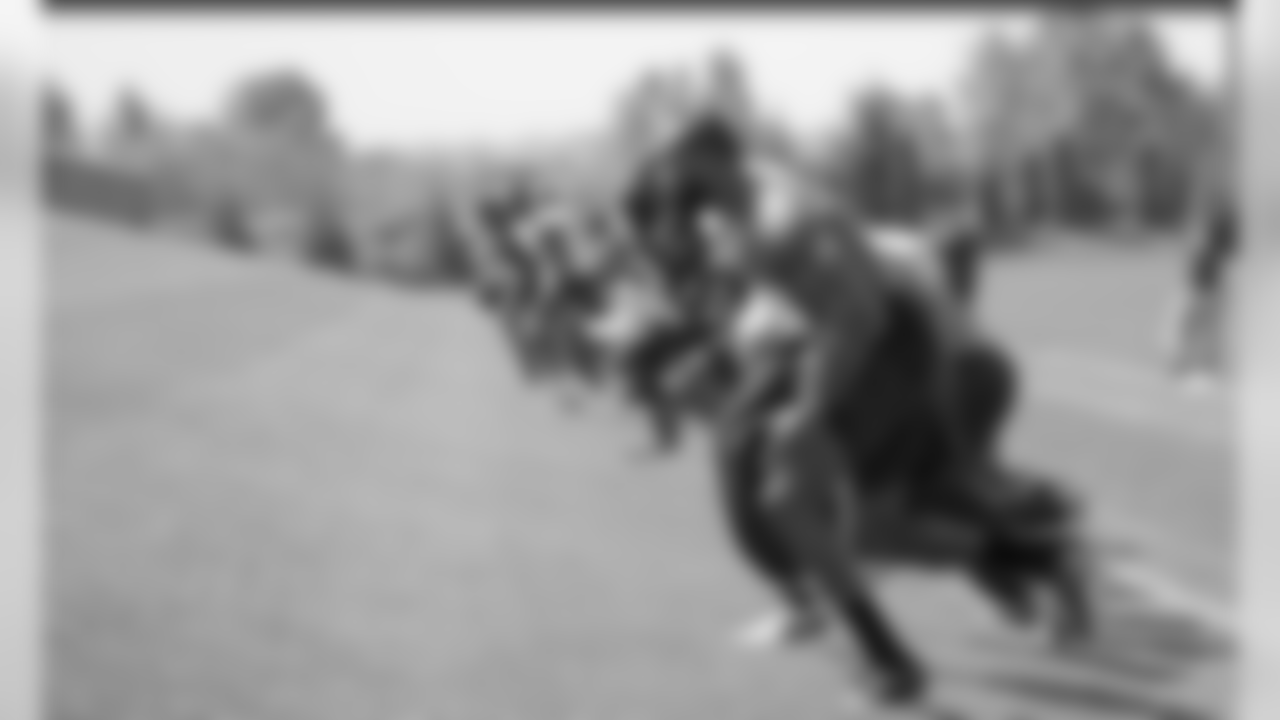

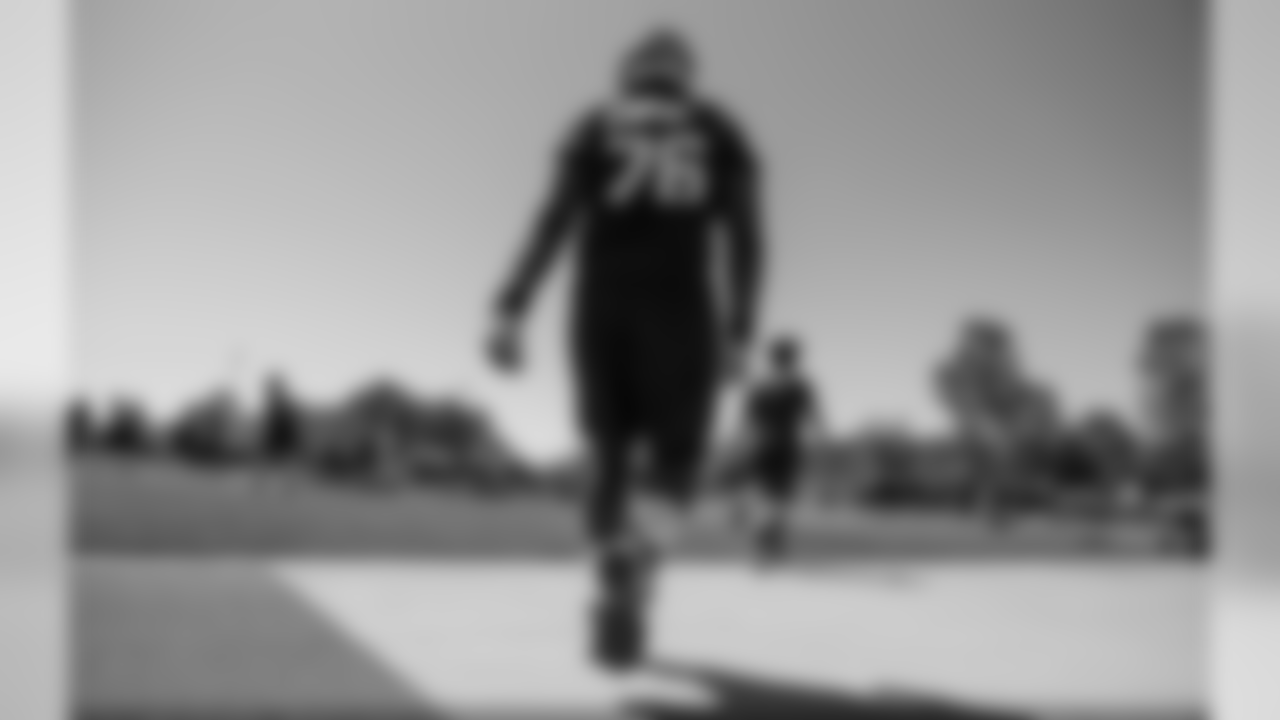
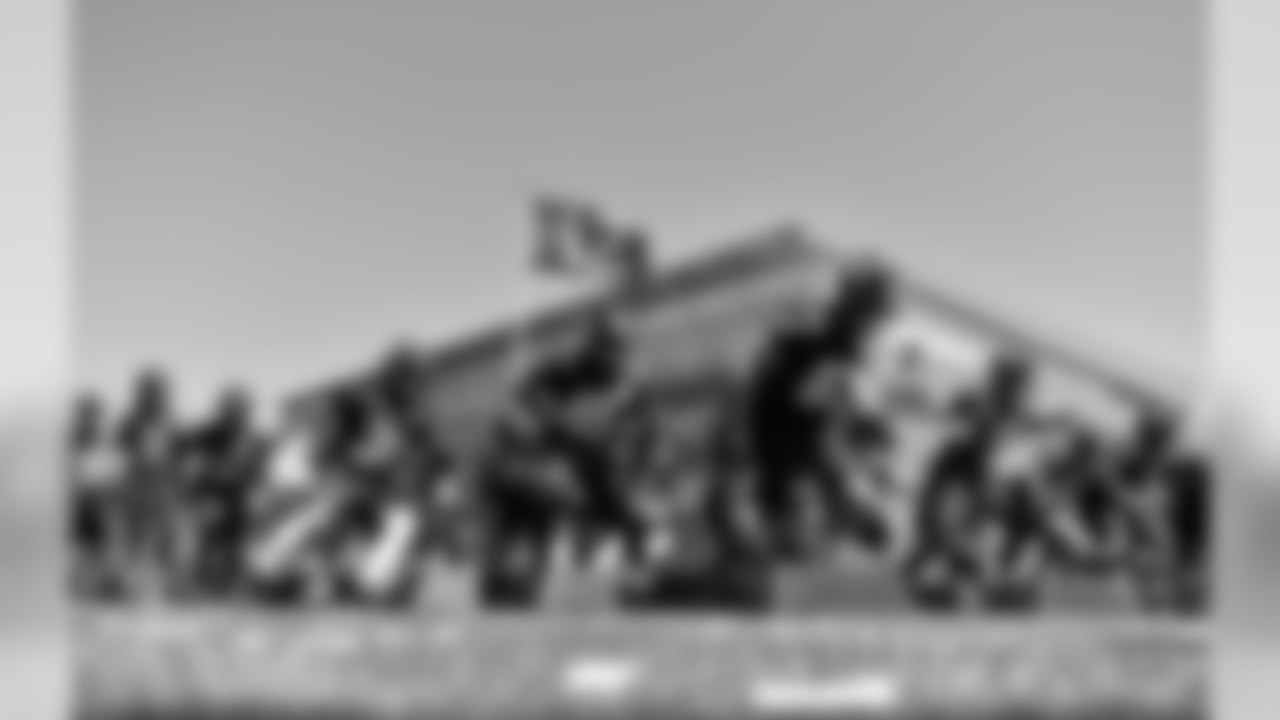

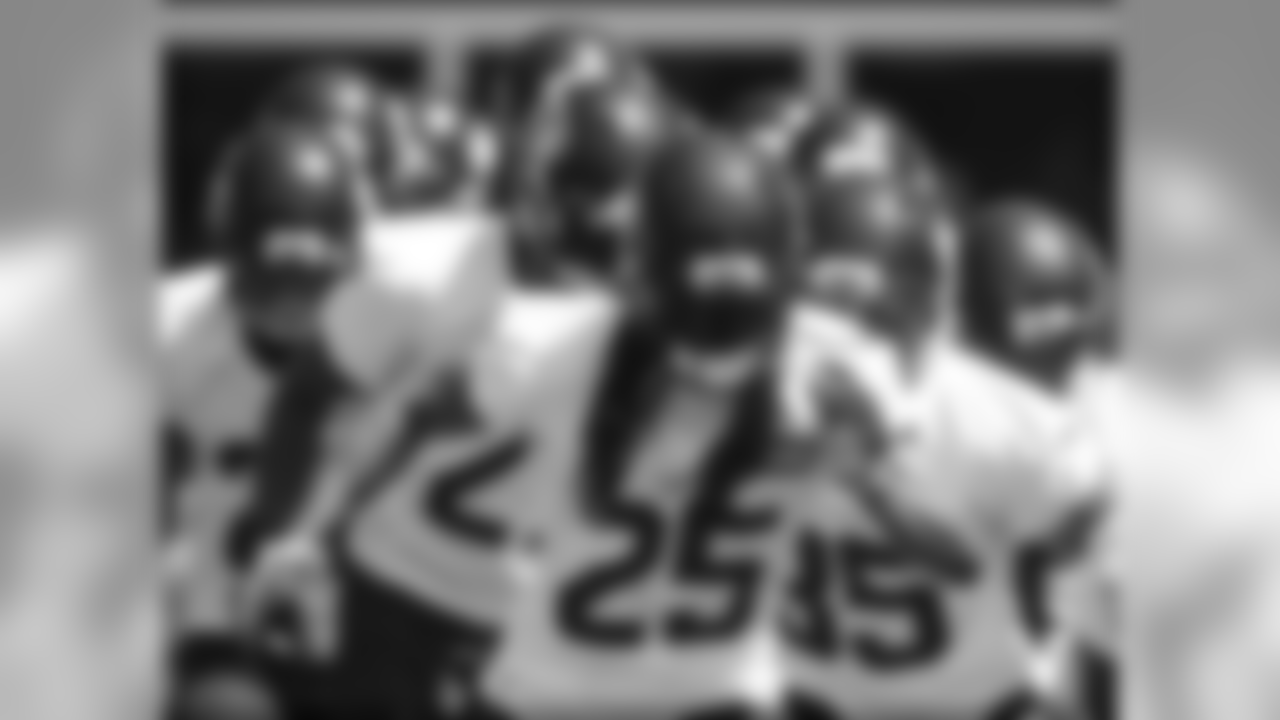
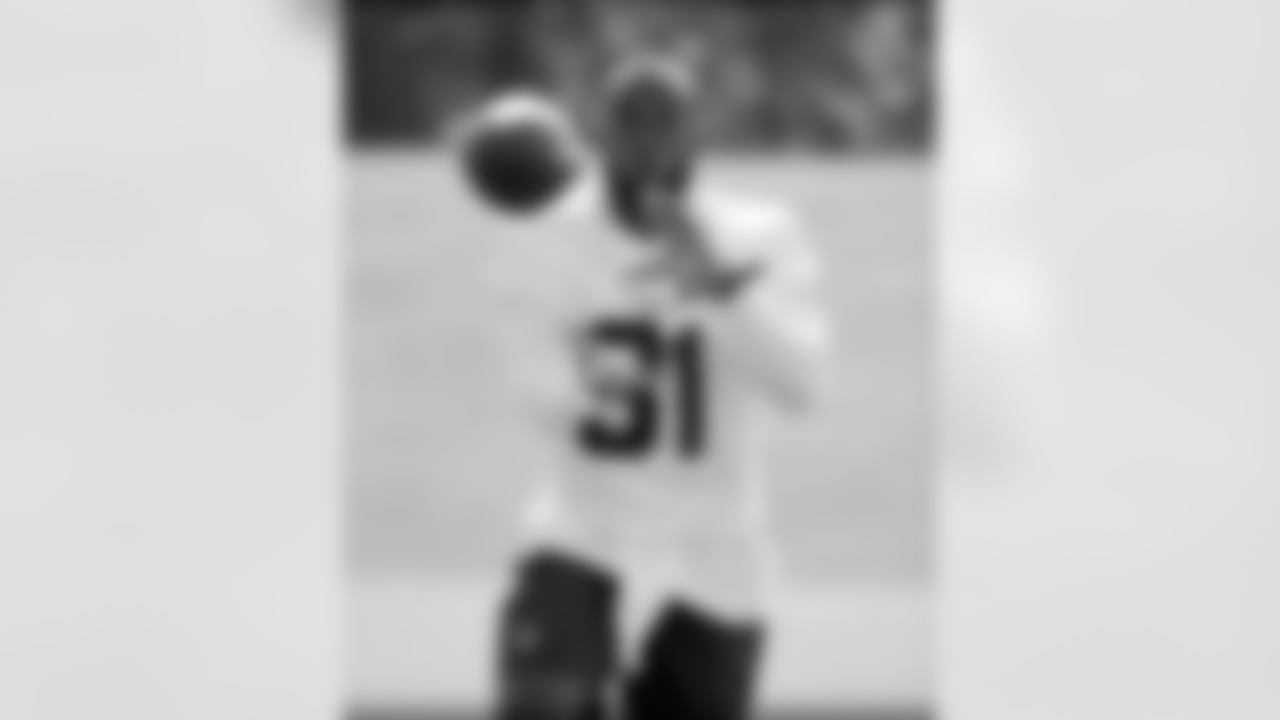


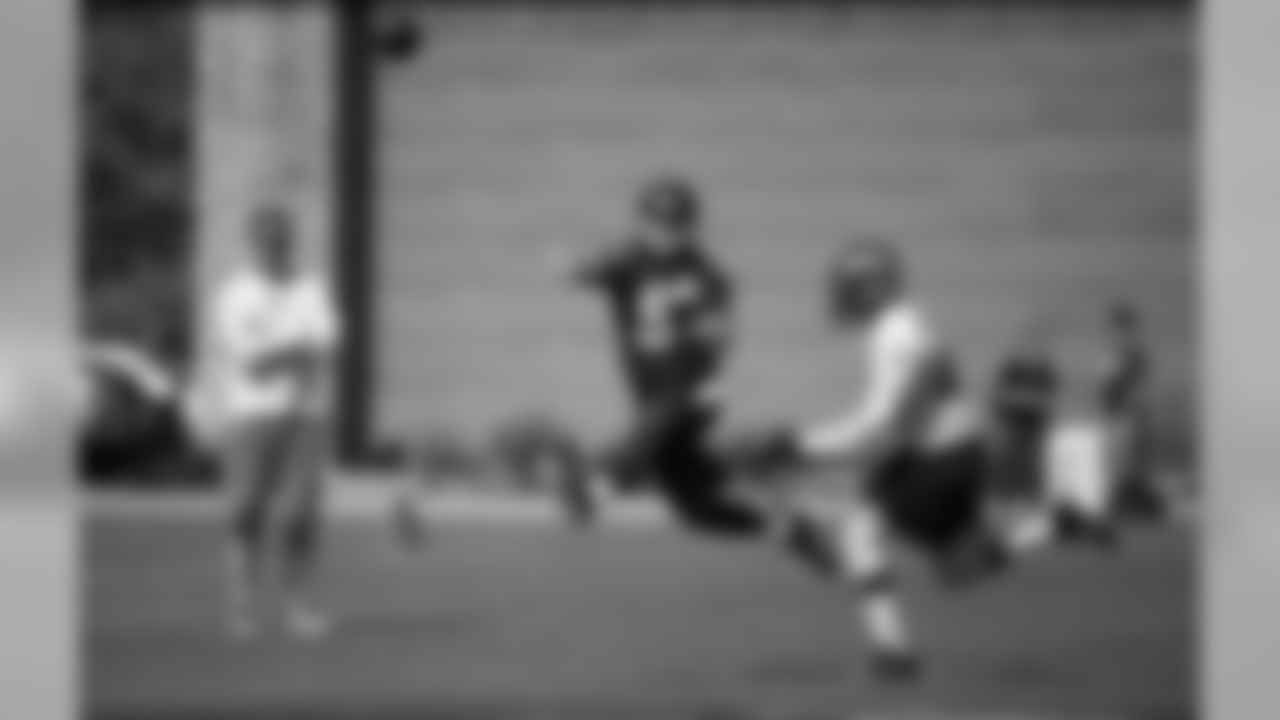
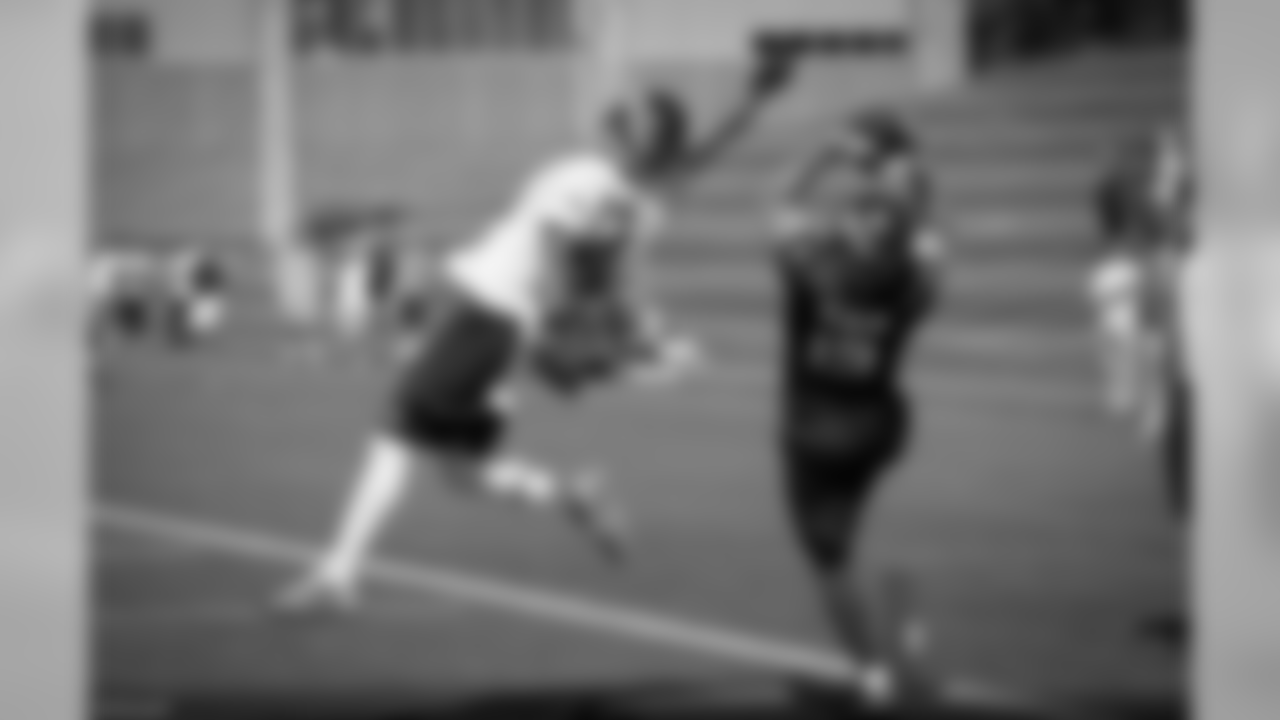
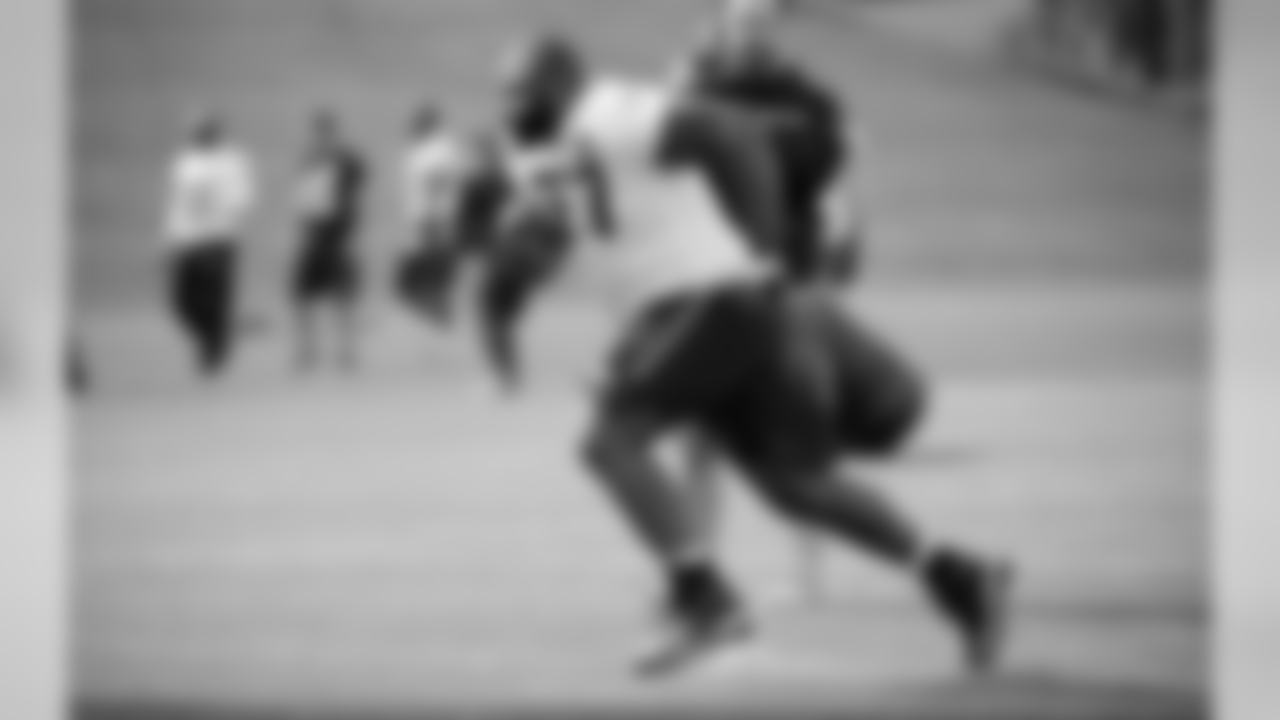
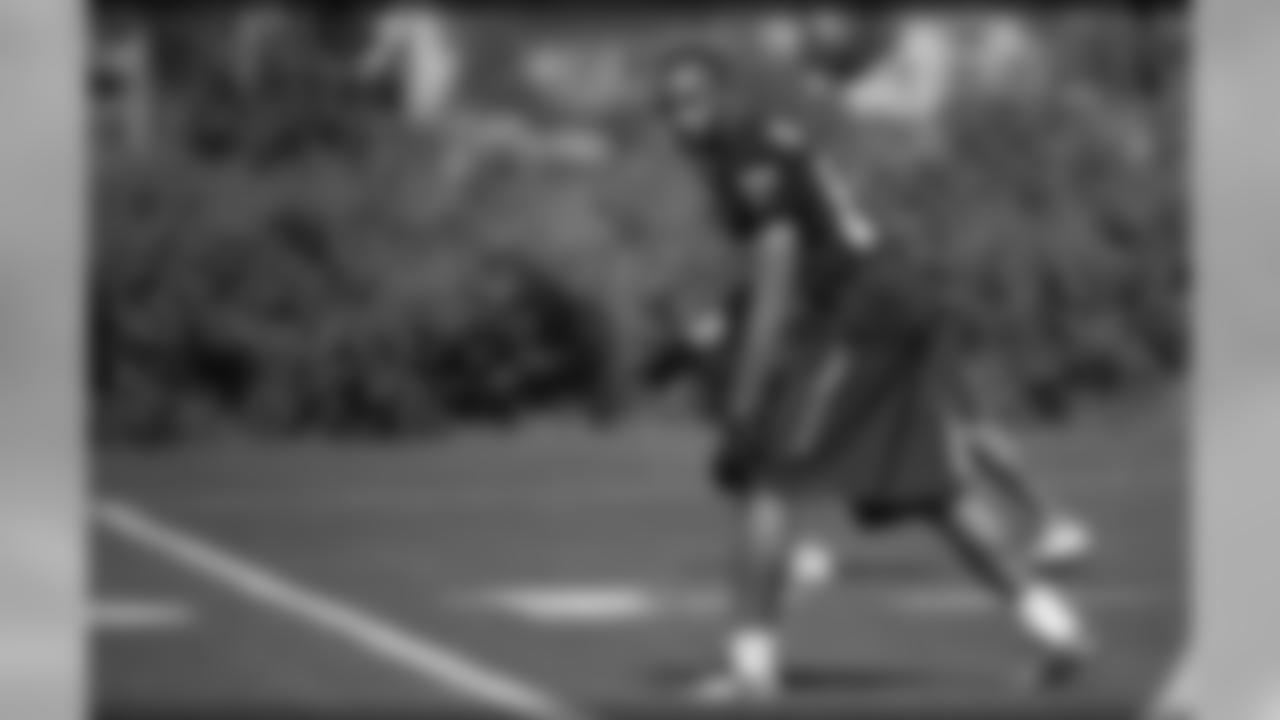
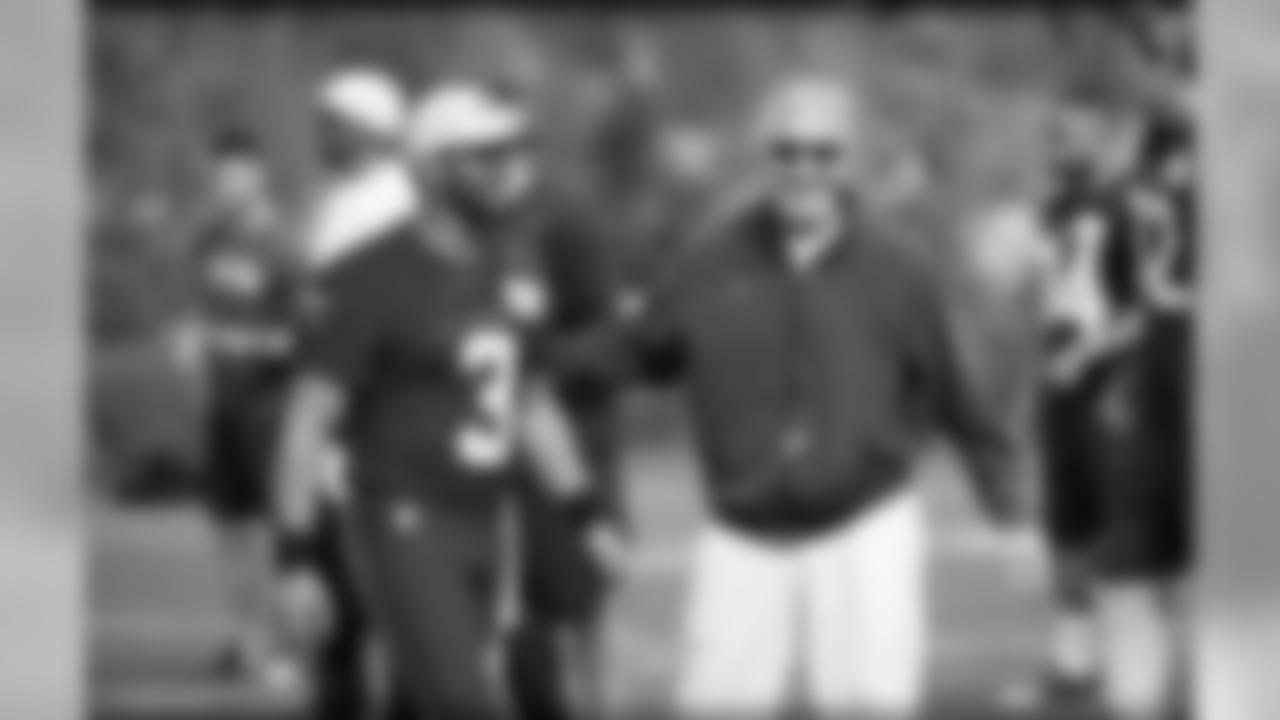
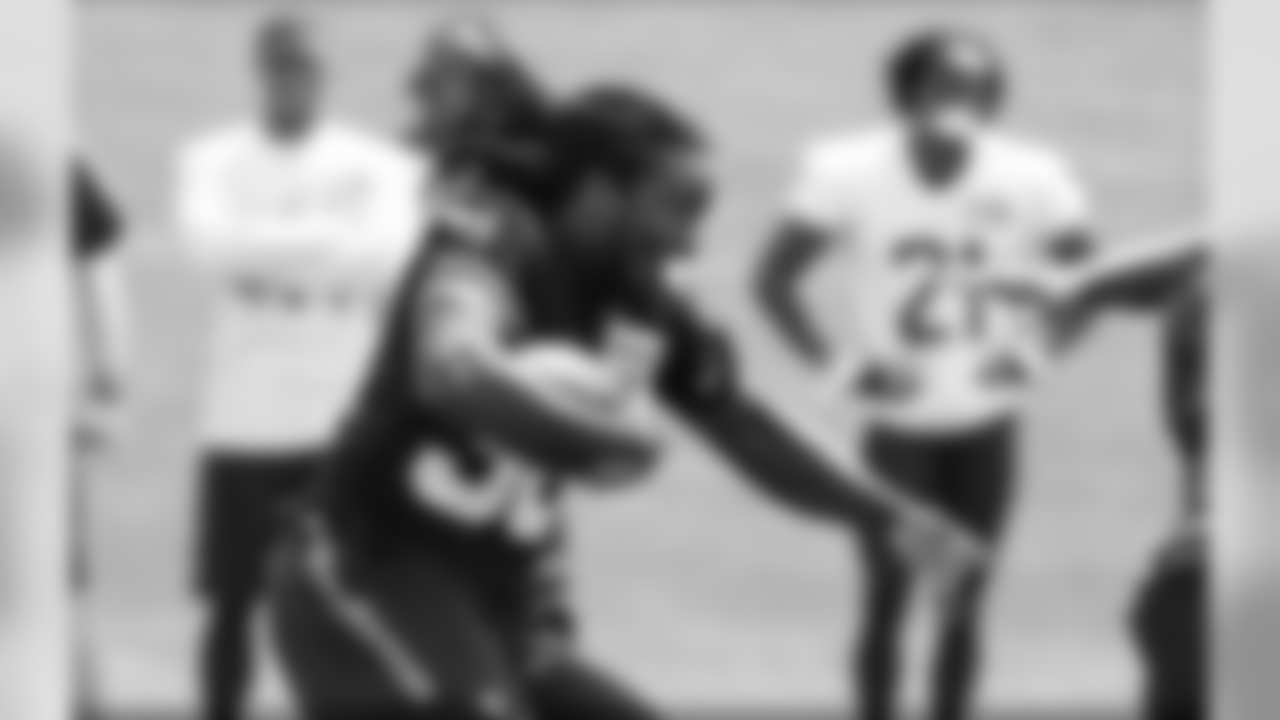
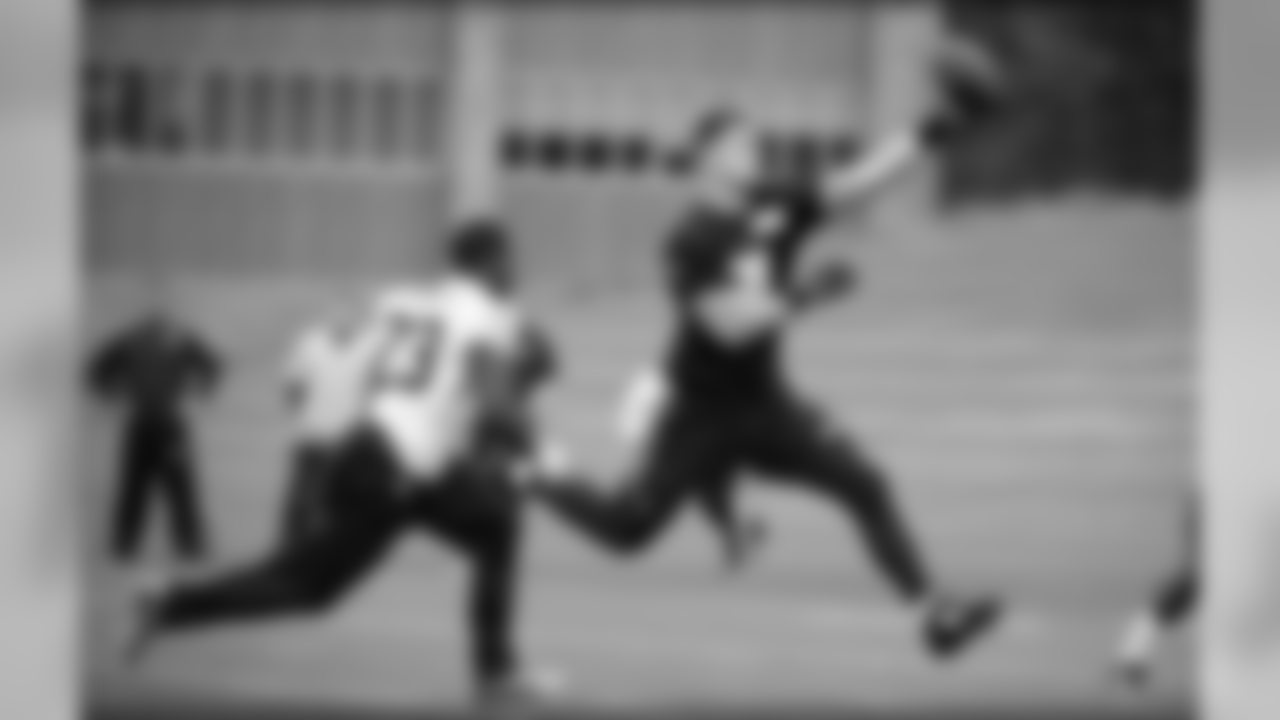

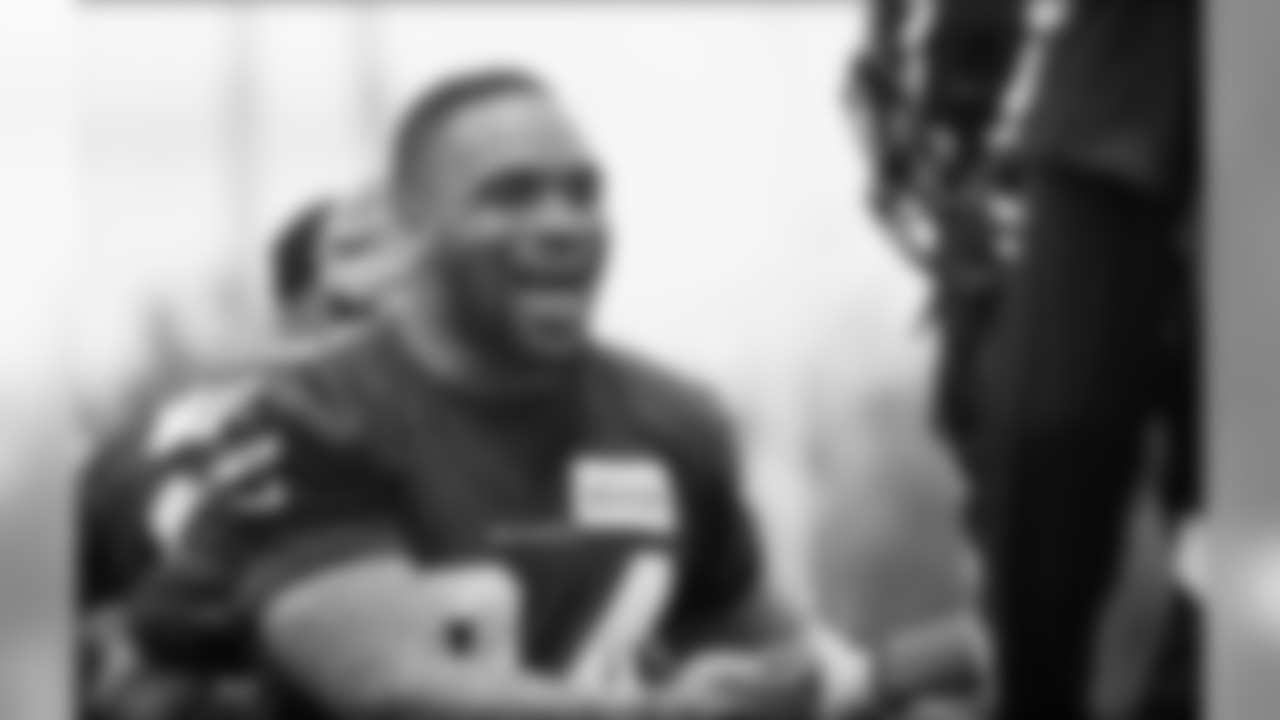
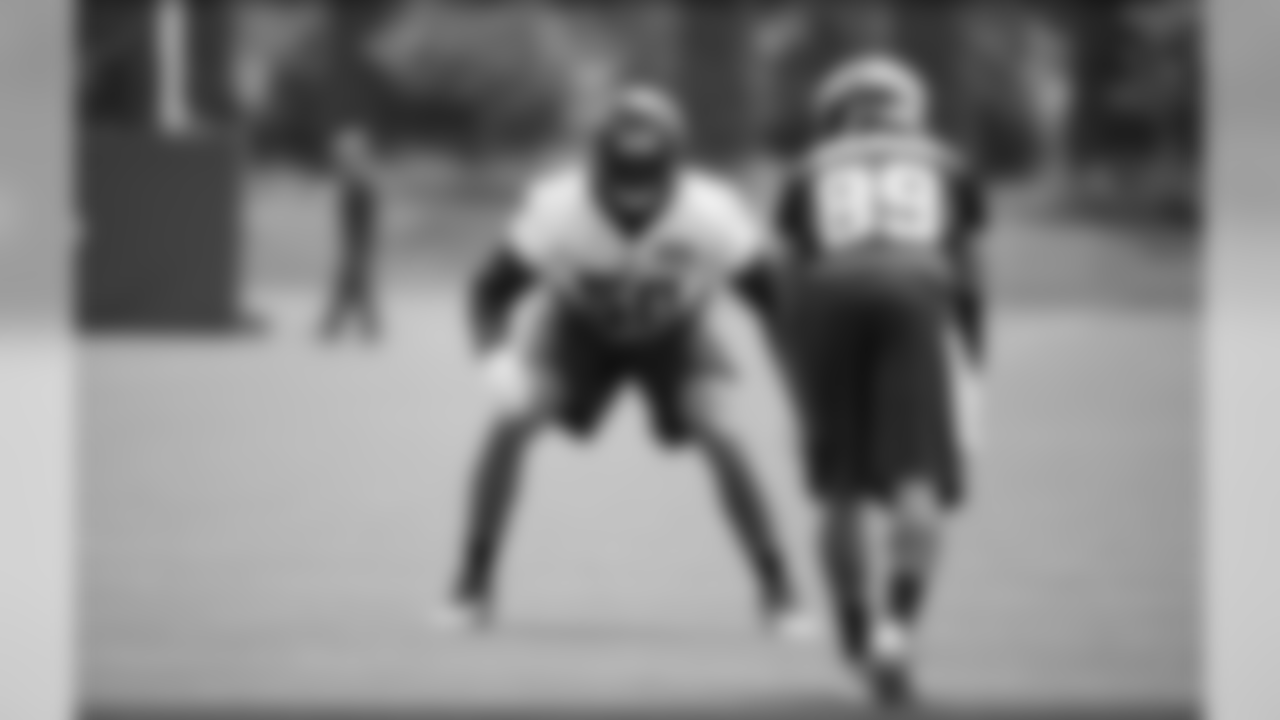
Player: OL Ethan PocicCause: Wounded Warrior ProjectArtist: WeirdoPocic: "I chose this charity to show respect for those that sacrificed for our country."
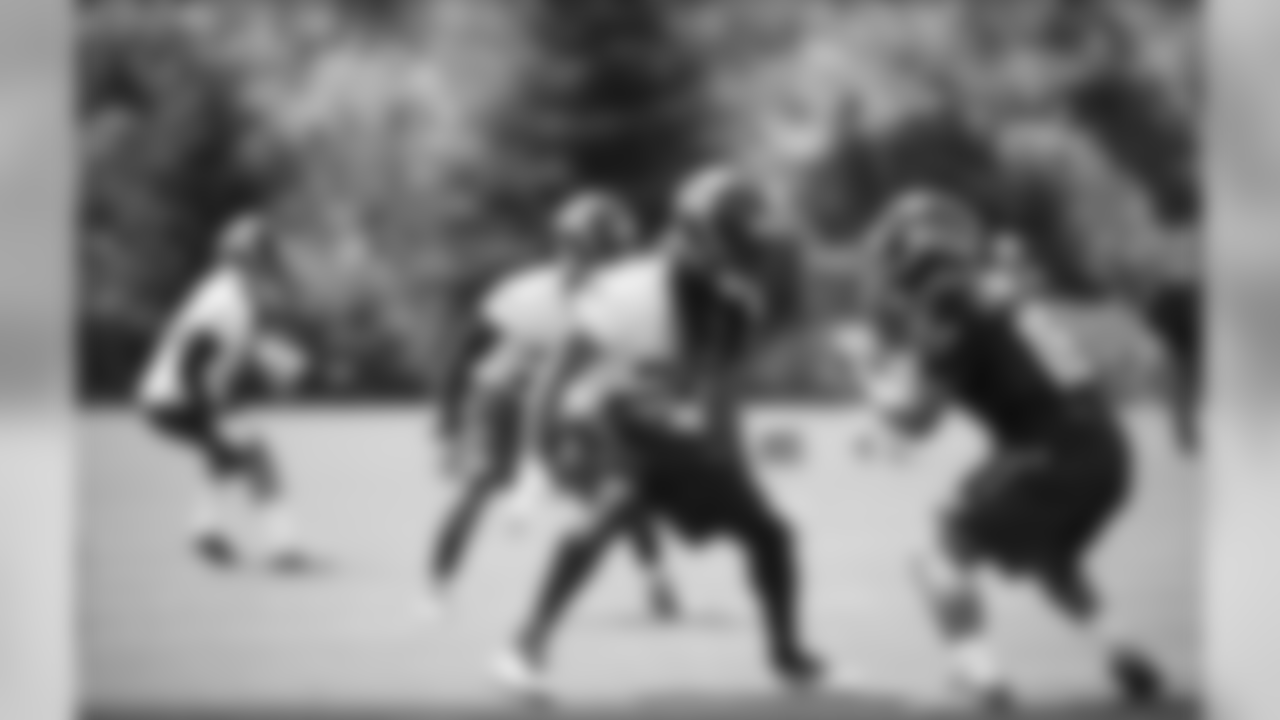
Player: DT Jarran ReedCause: Black Belt Community FoundationArtist: WeirdoReed: "I chose this charity to give back to the community and be a good role model."

